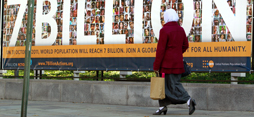

Urban Security
International Forum of Mayors on Security and Crime Prevention
The demand for knowledge and expertise to address the issues of security and crime prevention in cities is vast. And yet, so is the experience and the results that have been achieved by local authorities and their citizens.
Strengthening security in urban contexts cannot be limited to the adoption of physical security measures or instruments to search for and detect criminal behaviors. It requires the consideration of a wide range of possible options, and the promotion of multi-sector approaches to the design and implementation of urban safety policies that look at issues such as urban planning, education, employment, health, housing and shelter, migrants integration and other issues.
It is in the spirit of sharing information, successes and approaches to addressing the complex challenges of urban security that UNICRI, in partnership with UN-HABITAT and the Municipality of Turin, has organized the International Forum of Mayors on Security and Crime Prevention, held in Turin on 20 - 21 May 2013.
This Forum aimed at addressing the complex and changing dynamics of urban security and crime prevention challenges and approaches. It explored the enabling factors impacting the rule of law in urban environments, highlighted innovative urban safety and security policies, and engaged cities from different continents to share best practices and lessons learned.
The Forum contributed to the development of innovative approaches to urban security involving sustainable, affordable and transferable measures to prevent crime and reduce the fear of crime among citizens. The meeting provided a special opportunity to identify potential partners, collaborators and stakeholders, and facilitate the sharing and transfer of policies and best practices between cities around the world.
High-level representatives from Bangkok, Modena, Hebron, Beirut, Ouagadougou, Seoul, Durban, St. Petersburg, Lyon, Madrid, Makati, Turin, Cape Town, Asuncion, Santiago de Chile, and Maputo addressed the plenary sessions, sharing good practices and challenges they are facing in addressing the following thematic areas:
- The role of governments and municipalities in urban security and urban crime prevention
- Effective urban crime prevention strategies and practices
- Promoting urban security and prevention of urban crime
- Meeting the challenges of exclusion, urban security and vulnerable groups
The Forum also included four workshops which provided the opportunity to discuss common problems and identify actors and areas for future interventions. The themes considered by the workshops included the following:
- Reducing Vulnerabilities
- Enhancing Public-Private Partnerships
- Promoting the Rule of Law




